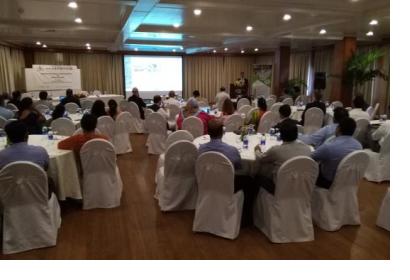UN-SPIDER has been invited to participate in a workshop and conference organized by the MOBILISE project in Colombo, Sri Lanka. The project, conducted in Sri Lanka, Pakistan and Malaysia, brings together academic institutions from the United Kingdom, Sri Lanka, Pakistan and Malaysia as well as government agencies involved in disaster risk reduction and emergency response efforts. More than fifty participants from a variety of institutions and universities where the project is being conducted, representatives of the United Nations and other international and regional organizations convene in Colombo for the events, which take place from 27 February to 1 March.
Under session 3 on "Applications of satellite technology in disaster risk reduction", which takes place on 28 February, UN-SPIDER will present on the role of satellite technology in disaster risk reduction and response efforts. The session also features a presentation on drought monitoring in Sri Lanka by the International Water Management Institute (IWMI), a UN-SPIDER Regional Support Office.
The MOBILISE project aims to develop a digital platform that provides space-based and in-situ data and information to a range of agencies in order to support them in establishing a common understanding of vulnerabilities and improve the resilience of communities at risk. Besides defining such a digitally enhanced multi-agency collaboration model, the project will model cascading effects of disasters and develop 3D visualizations of real-time satellite data for constructing live disaster events to support disaster reponse, among other activities.
MOBILISE focusses on Priority 2 of the Sendai Framework for Disaster Risk Reduction, "Stengthening disaster risk governance to manage disaster risk", and also contributes to the other three priorities. It supports three UN Sustainable Development Goals: Sustainable Cities and Communities (SDG 11), Partnerships for the Goals (SDG 17) and Industry Innovation and Infrastructure (SDG 9).

